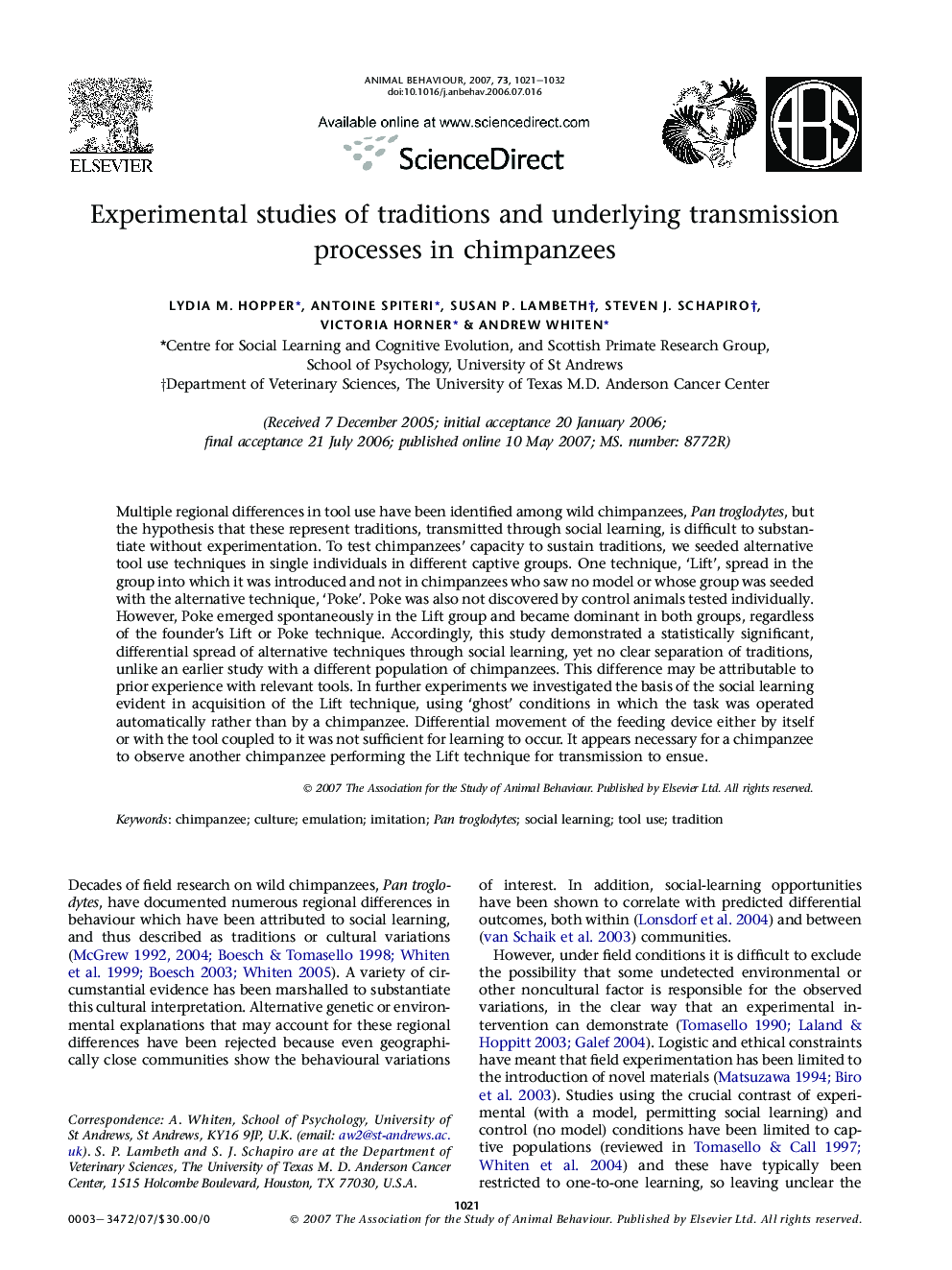| Article ID | Journal | Published Year | Pages | File Type |
|---|---|---|---|---|
| 2418197 | Animal Behaviour | 2007 | 12 Pages |
Multiple regional differences in tool use have been identified among wild chimpanzees, Pan troglodytes, but the hypothesis that these represent traditions, transmitted through social learning, is difficult to substantiate without experimentation. To test chimpanzees' capacity to sustain traditions, we seeded alternative tool use techniques in single individuals in different captive groups. One technique, ‘Lift’, spread in the group into which it was introduced and not in chimpanzees who saw no model or whose group was seeded with the alternative technique, ‘Poke’. Poke was also not discovered by control animals tested individually. However, Poke emerged spontaneously in the Lift group and became dominant in both groups, regardless of the founder's Lift or Poke technique. Accordingly, this study demonstrated a statistically significant, differential spread of alternative techniques through social learning, yet no clear separation of traditions, unlike an earlier study with a different population of chimpanzees. This difference may be attributable to prior experience with relevant tools. In further experiments we investigated the basis of the social learning evident in acquisition of the Lift technique, using ‘ghost’ conditions in which the task was operated automatically rather than by a chimpanzee. Differential movement of the feeding device either by itself or with the tool coupled to it was not sufficient for learning to occur. It appears necessary for a chimpanzee to observe another chimpanzee performing the Lift technique for transmission to ensue.
